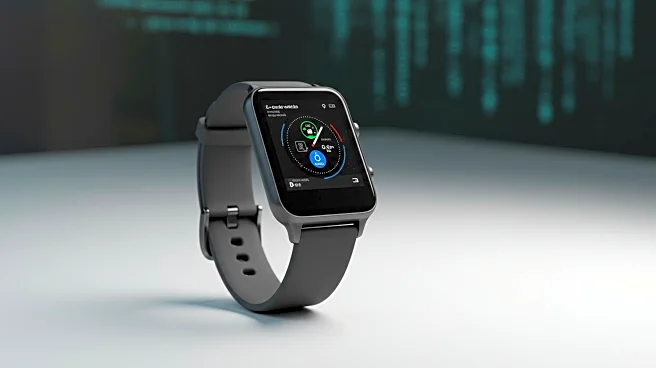What's Happening?
Pebble co-founder Eric Migicovsky has unveiled two new e-paper smartwatches, the Core 2 Duo and Core Time 2, developed by Core Devices. These watches are designed with sustainability in mind and are compatible with existing Pebble apps. The Core 2 Duo, priced at $149, features a monochrome display and improved battery life, while the Core Time 2, priced at $225, offers a color display and additional features such as a heart rate monitor. Both models emphasize water resistance and extended battery life. The watches run on an open-source PebbleOS, allowing integration with a wide range of apps and watch faces. Pre-orders are currently available through the rePebble store.
Why It's Important?
The introduction of these new smartwatches marks a significant step in wearable technology, particularly in terms of sustainability and open-source software. By focusing on compatibility with existing Pebble apps, Pebble is catering to its established user base while also attracting new customers interested in customizable and sustainable tech solutions. The open-source PebbleOS allows developers to create and integrate new applications, potentially expanding the functionality and appeal of these devices. This move could influence other tech companies to adopt similar open-source strategies, promoting innovation and collaboration within the industry.
What's Next?
As the smartwatches become available for pre-order, consumer response will likely dictate future developments in Pebble's product line. The success of these models could lead to further advancements in e-paper technology and open-source software in wearable devices. Additionally, Pebble's focus on sustainability may encourage other companies to prioritize eco-friendly practices in their product development. The tech community will be watching closely to see how these watches perform in the market and whether they inspire similar innovations from competitors.
Beyond the Headlines
The launch of these smartwatches highlights the growing trend towards open-source technology in consumer electronics. This approach not only fosters innovation but also raises questions about intellectual property and the balance between proprietary and open-source models. As more companies explore open-source options, there may be shifts in how software development is approached, potentially leading to new business models and collaborations across the tech industry.









